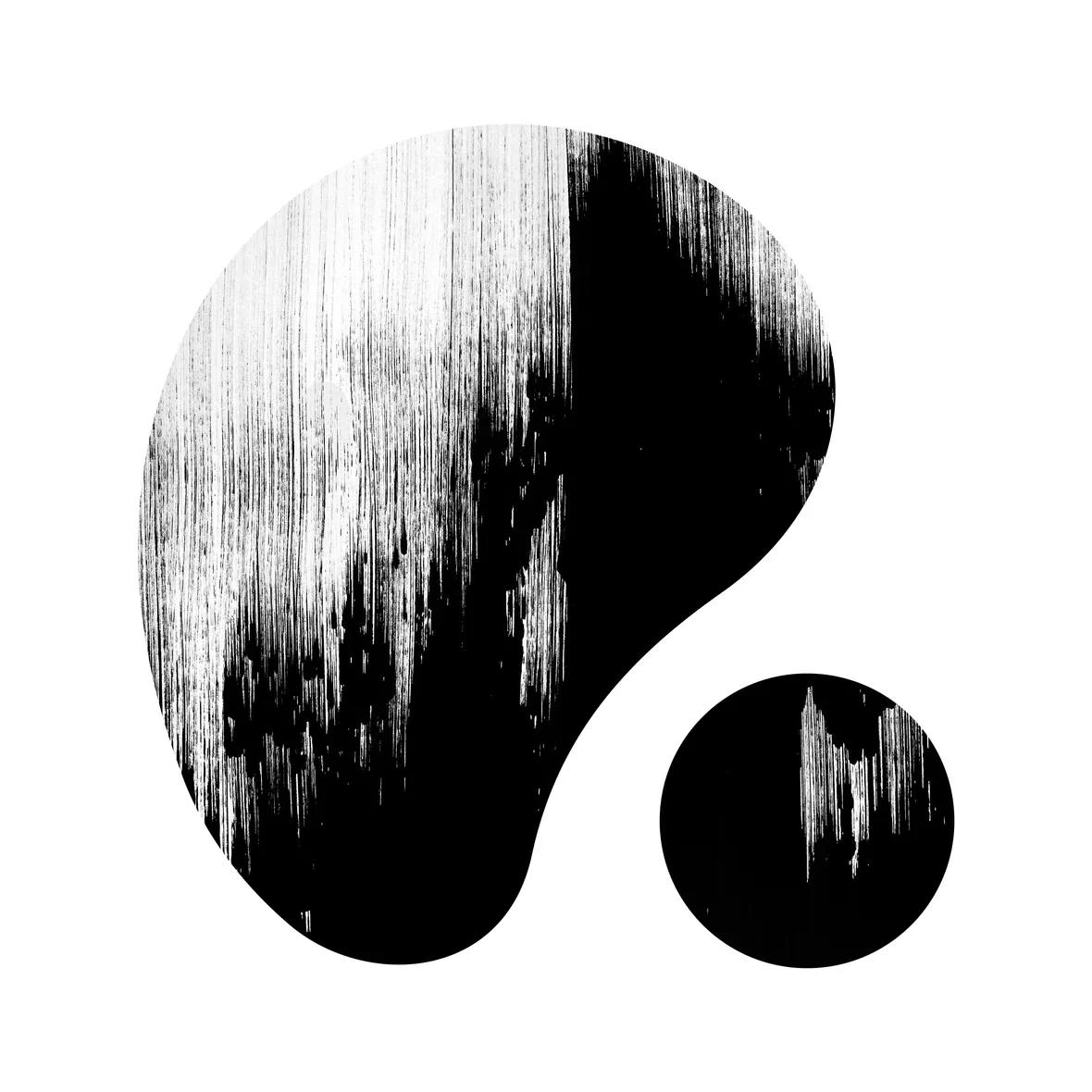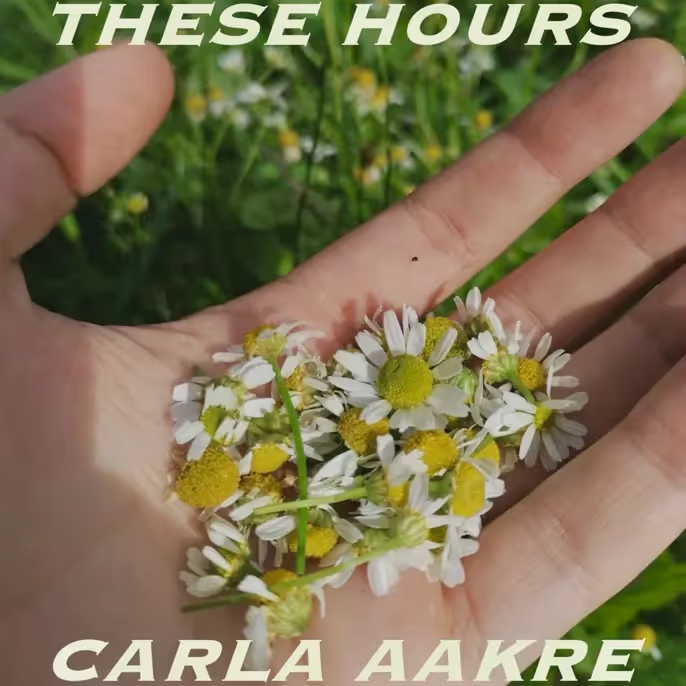Exploring Themes of Loss, Yearning, Consumption & Desperation, Conchis Album, Chapters

Five years in the making, Finnish multi-disciplinary artist Conchis releases debut album, Chapters, an eleven-track record featuring previously released singles ‘Cray Cray’, ‘Trouble’ and new focus track ‘Floods’. This new album delves into the depths of human psychology, exploring themes of loss, yearning, consumption, and desperation. Despite grappling with Chronic Fatigue Syndrome (ME/CFS) during the creation of Chapters, Conchis persevered and adapted. One of the ways she was able to complete the record was by allowing only five vocal takes per song. Rather than perceiving this as a negative constraint, the necessary parameters have instead infused the album with rawness and vulnerability, reflecting her journey through illness and artistic expression.
Named after a character from John Fowles' enigmatic novel, The Magus, Conchis also draws inspiration from the book's suspenseful and twisted narrative. Finding parallels between the novel’s magus and the symbolism of the tarot card, The Magician, she intertwines these elements throughout her album, sampling sounds reminiscent of earth, water, air, and fire. Alongside these elemental features, her music is also punctuated with the dichotomies of light and dark, beauty and roughness.
Produced and mixed by Jonas Verwijnen, mastered by the renowned Peter Maher, and featuring collaborations with Joonas Hakava (bass) and Austin Finamore (cello), Chapters showcases Conchis' unique style, blending introspective lyrics with powerful melodies.
Chapters opens with ‘Trees Grow Higher’, a reflection on striving for personal growth and success, but finding the opposite has happened. As such, the symbolic image of a tree, slow-growing, stationary and tranquil, emerges as the sage antithesis to our fast-paced lifestyle. The beats here tick like a clock, a reminder to the listener that all comes in time, and the layers of static electronica serenely caress this soundscape. It’s richly meditative and a powerful starting point for the album.
Next is the album’s focus track ‘Floods’, an instantly attention-grabbing and Fever Ray-esque track that takes no prisoners. Over the forceful, somewhat clashing production, Conchis warns of humanity’s destructive impact on our fragile planet. The marching rhythm brings to mind a war march while the experimental samples are metaphorical interpretations of natural disasters. Addressing these environmental concerns, Conchis reflects, “'Floods' is a song I wrote about the state of our planet and how we keep exploiting it, despite knowing the consequences. I, like so many others, worry about our legacy and the condition in which we leave this planet for future generations.”
‘She Was Born’ is one of the most personal tracks on the album as it delves into the pain and healing process following the passing of Conchis’ mother. Her voice is more stripped-back here, allowing the vulnerability to flow through the dreamy textures and gradually ascending track. This tragic event was one of the catalysts to Conchis’ songwriting and through the process Conchis says that, “I still feel my mom’s presence strongly and like to think that she is guarding those of us who were left behind.”
The fourth single is ‘Cray Cray’, a song that captures the complexity of life's choices and the rawness of human emotion. It’s a deeply personal and introspective track that delves into the choices we make in life and their impact on our personal journey. She directly confronts challenges unique to her life, such as the creative boundaries one places on themselves trying to adhere to a “style”, or whether to have children or not, or how to navigate life with a chronic illness.
Conchis continues to explore her personal experiences with ‘Stories’, which captures an intensely painful moment in her life when overcome with the symptoms of CFS, Conchis found herself kneeling on the ground bargaining with whatever higher power might be out there that she would make changes to her life if only her health could be restored. As she reflects: “It was a moment when I noticed that, despite not being a religious person and even being borderline atheist, I still turned to God in despair. I wanted to write about this phenomenon and how religion can sometimes be an easy way out if we just perform the rituals without actually taking responsibility for our actions and changing on a deeper level.” The surging electronica mimics Conchis waves of acute desperation, the soaring vocals like rising prayers, and the relatively upbeat undertones echoing a subtle sense of hope that things might change for the better.
‘Just Not There’ opens with chant-like lines “know you want it, but it’s just not there” over sloping and clipped beats. This track takes a distinctively dark turn Conchis grapples with severe burnout and the fear and disappointment that her dreams would never come true. It’s a visceral number with harsh and discordant sounds.
The provocatively titled ‘The World Is Flat’ is a deceptively serene moment midway through the album. Cool hisses, steady percussion, and floating vocals disguise the more pervasive theme. Ultimately, this track is a response to how everyone believes their opinions to be the right one and in the age of social media, where everyone has the possibility to express themselves, it can sometimes become a shouting contest.
In a similar theme, ‘People (Chapters)’ further reflects on the pitfalls of modern life. The brooding and slow-burning exercise in restraint mirror the cyclical pattern of daily living. Like a hamster on a wheel, many of us can feel trapped in a directionless race. Conchis considers this conundrum, “I was watching fellow people and how we all just seem to keep striving and striving, thinking that the next thing—whatever it is—will make us happy.”
With ‘Something So Shameful’, Conchis delves further into her fascination with psychology and in particular for this track the effects of toxic shame. The first half of this track is a creeping and eerily persuasive narrative that mirrors the way these negative emotions sneak their way into our psyche. As the track builds, this feeling intensifies until the 1:27 minute mark where Conchis’ stream-of-consciousness bursts fourth in an enraged rap-style.
The penultimate single is the elemental ‘Trouble’, which plays with fire sonically and thematically. Not only do these visceral sonic elements add to the intensity of ‘Trouble’, but Conchis’ potent vocal performance also portrays the emotional rawness and dark energy of this track. In those verses, her voice (and perhaps her heart) sounds guarded; reproachful of the unknown trouble that might lie ahead. By contrast, her vocals on the chorus transform into a siren-esque call, which reaches towards the listener through the rich matrix of electronica.
Chapters closes with ‘Calm Your Mind’, an atypically soothing song that arrived prophetically through Conchis’ intuitive songwriting. She recalls, “'Calm Your Mind' is about when I fell ill with Chronic Fatigue Syndrome (ME/CFS). At first, when I was in such bad shape physically, my mental health also started to deteriorate and I had constant panic attacks. I had to take medication for this, and due to my illness, I was trapped inside four walls for years since my physical health wouldn’t allow me to walk. Interestingly enough, I wrote this song before I fell ill, and it was only after I fell ill that the lyrics made sense to me. This has happened to me before as well—I sometimes write tracks that are omens of what is to come, and then they come true at a later point.” The first-person perspective is a truthful-yet-weary experience of being so worn down by one’s illness, and even here the energy to keep narrating wavers. The bulk of this song is dominated by avant-garde and slicing synths that cut through the sludging backdrop. Towards the end, even the instrumentation loses speed, slowing down and the thumping heartbeat - a reminder that you’re alive - is the final sound.
Chapters is out on 25th October via Kieku Records.

In Finland, Kieku ja Kaiku is a popular cartoon from the 1950s, starring two chickens sowing mischief across their forrest land. Their names are onomatopoeias for the rooster’s crow—cock-a-doodle-doo, loud, brash, and eye-opening. Finland’s KIEKU RECORDS takes its name from these unofficial mascots, borrowing from childhood nostalgia but also carrying an important message. It’s time for the music industry to wake up.
Heading 1
Heading 2
Heading 3
Heading 4
Heading 5
Heading 6
Lorem ipsum dolor sit amet, consectetur adipiscing elit, sed do eiusmod tempor incididunt ut labore et dolore magna aliqua. Ut enim ad minim veniam, quis nostrud exercitation ullamco laboris nisi ut aliquip ex ea commodo consequat. Duis aute irure dolor in reprehenderit in voluptate velit esse cillum dolore eu fugiat nulla pariatur.
Block quote
Ordered list
- Item 1
- Item 2
- Item 3
Unordered list
- Item A
- Item B
- Item C
Bold text
Emphasis
Superscript
Subscript





